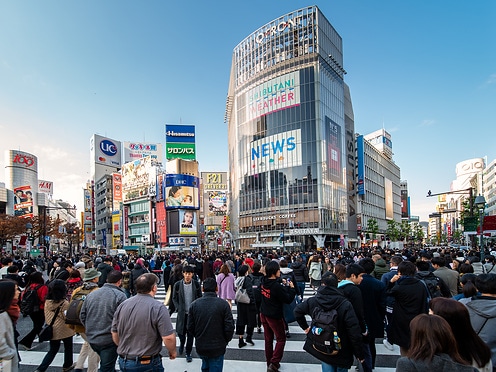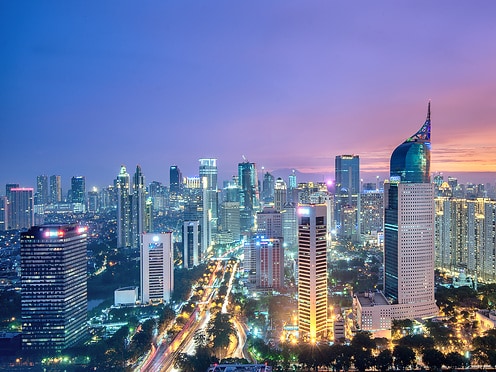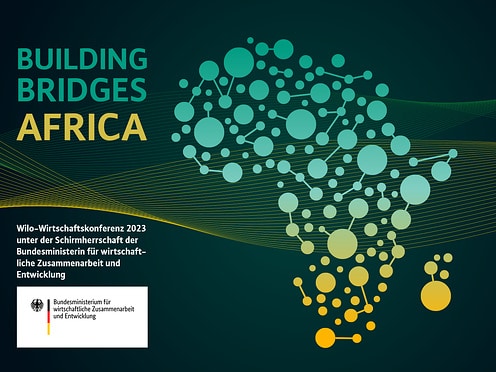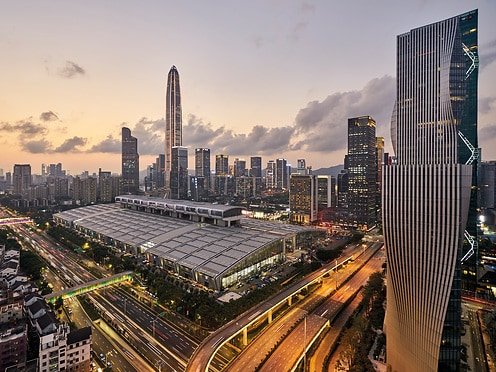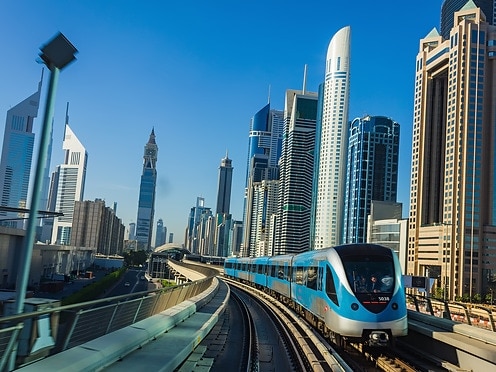AI is driving urban evolution
This article features:
Artificial intelligence (AI) is not just changing the way we work but will also forever change our way of life in modern cities, also known as smart cities or Smart Urban Areas. Software models analyse complex data, recognise patterns and make predictions. This allows urban living spaces to be redesigned, revolutionising urbanisation altogether. These models are making cities smarter, more efficient and more sustainable. In this way, AI is meeting urban challenges head on with innovative solutions and improving the quality of life in urban areas.

What role does AI play in shaping the urban future?
AI will fundamentally change the way that cities are planned and managed. By providing real-time data and analyses, AI paves the way for data-driven decision-making. The integration of AI into urban development marks a significant turning point. This will not only increase the efficiency and sustainability of urban systems, but also shape a more inclusive and fairer urban future.
While the benefits of AI for urban development are obvious, it should be implemented within a strong ethical and clearly regulated legal framework. Questions of privacy, data security and social justice are at the heart of the discussion regarding the role of AI in the future of urbanisation. When we get down to the details, this means it must be ensured all city dwellers benefit equally from the advantages of the technology and that the rights and freedoms of the individual are protected.
Diverse areas of application for AI in cities
The areas of application for artificial intelligence in cities are diverse. From optimising traffic flows and improving energy efficiency to public safety and social services, AI can be used almost anywhere. With the help of AI technologies, cities can respond more precisely to the needs of their residents, minimise resource consumption and reduce their environmental impact. AI-supported systems streamline the management of complex urban infrastructures by not only making existing processes more efficient, but also providing innovative solutions to urban challenges.

Intelligent infrastructure and services
AI algorithms enable predictive maintenance of urban infrastructure by analysing massive amounts of data from various sources. For example, they recognise wear and tear and damage patterns in urban infrastructure such as bridges, roads and utilities. This proactive approach can reduce downtimes and extend the service life of important elements of infrastructure. In the field of energy management, AI systems optimise how much energy buildings use. Artificial intelligence also helps cities to achieve their sustainability goals by improving the efficiency of street lighting and transport systems.
Urban mobility and transport
With real-time monitoring and data-supported optimisation, AI-supported traffic systems improve traffic flows by predicting when traffic jams will happen and intelligently adjusting traffic lights to avoid this. This leads to a significant reduction in congestion at important traffic junctions. AI-supported solutions can also be used to plan public transport, routes and timetables more efficiently. Self-driving vehicles, powered by AI, could transform urban traffic in the long term by reducing accidents and traffic congestion.

Environmental monitoring and sustainability
In the area of environmental monitoring, AI allows precise predictions to be made about air quality and environmental conditions. These kinds of models use data from sensors, analyse pollution levels and come up with forecasts. This means cities can take proactive measures to improve air quality. In the waste management sector, AI algorithms optimise waste collection routes, reducing fuel consumption and emissions. AI can also identify more suitable locations for green spaces and in doing so promote a healthier and greener urban environment.
Safety and protection
AI-supported surveillance systems can make a valuable contribution to cities by ensuring safety. One example is how, if needed, the technology can recognise faces, analyse behavioural patterns and therefore support law enforcement agencies in the fight against crime. In the event of an emergency, AI algorithms facilitate a fast and efficient response by analysing data from emergency calls and dispatching rescue services in a targeted way.
Data-driven decision-making
By analysing extensive data sets, AI enables well-founded decision-making in urban planning and politics. It offers insights into demographic trends, land use patterns and economic developments. This helps urban planners and politicians make sustainable decisions on zoning, housing and infrastructure development. Additionally, AI models simulate the effects of political measures such as traffic restrictions or environmental initiatives, allowing an assessment to be made before these measures are implemented.
Social services and healthcare
By analysing data from various sources, AI systems can recognise patterns that indicate the outbreak of diseases. People using these systems can react quickly and take preventive measures. In addition, artificial intelligence can be used to allocate healthcare resources efficiently by comparing demand and availability in real time. This is especially important in urban areas, where healthcare services are often under pressure.
AI technologies also support social services by managing and distributing resources. This makes it possible to identify people who are entitled to certain programmes, ensuring that support reaches the people who need it most. As a result, artificial intelligence not only makes social services more efficient, it also contributes to a fairer distribution of resources.
Summary and outlook for the future
Artificial intelligence will completely transform cities as we know them: from infrastructure maintenance and traffic control to environmental monitoring and improving public safety. In this way, AI can contribute to more efficient, safer and more liveable urban environments. It also enables data-driven decision-making that promotes more sustainable and inclusive urban growth.
Despite the promising benefits, ethical considerations, transparency and the protection of privacy must take priority when AI technologies are introduced in urban contexts. Decisive factor: When developing and implementing AI, it should be ensured that the technology is in line with the values and needs of all city dwellers. This is the only way to distribute the benefits of AI fairly and minimise any potential negative effects.

